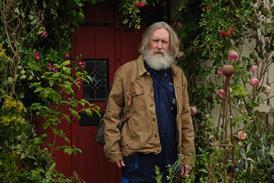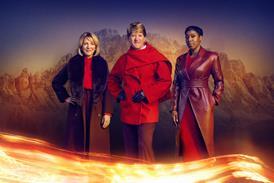Charter renewal is a chance to reshape the BBC for the future.
If you wanted a reminder of your uni debating society days, you needed to be at Bafta on Monday night, where boffins presented radical ideas for a BBC 10 years from now.
It kicked off with former R4 boss and St Peter’s College master Mark Damazer arguing that it is a subjective matter of value and politics, leading to a brain-tingling debate on the definition of ideology.
But before you count your lucky stars that you were safely inside watching cooking on BBC2, a very interesting practical question was raised: what exactly does the licence fee buy you?
Peter Bazalgette addressed this in his presentation, with Channel 4 boss David Abraham subsequently asking what could you do if you could unbundle services, given that we are moving towards a world of hyper-individualisation of choice driven by the internet?
Instead of self-referential, backward-looking debates about how you can maintain the logic for the bundle, we need to look at ways of connecting the licence fee to technology, consumer behaviour and choice.
Perhaps surprisingly, BBC COO Caroline Thomson was in broad agreement, stating that ‘what the licence fee buys you’ will be the major issue in the debate around Charter renewal.
In the past, the licence fee bought you linear TV and radio, which you could record, plus online. Now it brings you those things, plus Radioplayer and seven-day window access.
So what next? All of that, plus a 30-day window and access to the archive? And more interestingly, as Thomson pondered: “At what point do viewers start paying for that?”
Bazalgette suggested a scenario in which an obligatory licence fee costs £100, but with optional parcels of say £30-50 to pay for additional services via a credit system. Once these micropayments reach the parcel limit, there may be an option to purchase more, he proposed.
Charter renewal provides the opportunity to properly consider this and debate it. The BBC could raise a lot more money than it thinks it might. However, the model would have to be looked at carefully to ensure BBC income does not fall, and to avoid a two-tier system in which the ‘have-nots’ receive a bargain-basement BBC while the ‘haves’ get canals with Julia Bradbury and 3D dinosaurs.
Such change could also risk becoming a step on the path towards a subscription model, taking the BBC into direct competition with pay-TV rivals and making output more commercial as a result.
A YouGov survey unveiled at the event showed that the top priority for viewers (51%) is improving the value for money the BBC provides. While the current model is perhaps sustainable for five to seven years, technological change makes anything beyond that extremely unlikely.
Lisa Campbell is editor of Broadcast


























No comments yet